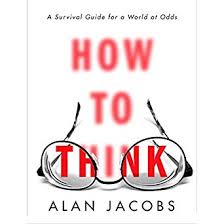Rod Dreher’s 2017 book, The Benedict Option: A Strategy of Christians in a Post-Christian Nation, caused quite a stir when it was published. It was reviewed both favorably and unfavorably. Dreher defended his position at The American Conservative, the magazine website he is the editor of, vocally and often. There were points in the public discussion that it wasn’t clear that everyone who was criticizing the book had read the same thing.
The Benedict Option is an idea borrowed from the monastic order that descended from St. Benedict. Dreher drew the idea that a resurgence of a Benedictine ethos would be beneficial from Alistair McIntyre’s seminal work, After Virtue.
Dreher, formerly a Roman Catholic, who has migrated to the Eastern Orthodox faith, sees a separatist community as the path forward in resisting the corrosive effects of our post-Christian culture.
Strengths
It is clear that Dreher has a good understanding of the problems with Western culture. It isn’t that one thing or another is the big problem. For example, sexual immorality in its various forms as celebrated by our culture, is not the main problem with our world. Or, perhaps more clearly, it is not unique to our culture.
The unique aspect of our culture is how relentlessly intrusive the anti-Christian influences are. Before the digital age keeping your kids from pornography was largely a function of not buying dirty magazines and reasonably screening their time at a friend’s house away from the family. Now pornography is streaming down the same digital pipeline as the cute, if inane, videos about making pretty bracelets or surviving in the wilderness.
Dreher recognizes that even if parents put a filter on their home internet and monitor usage carefully, the vast majority of the parents in the community have given their child their own digital device with unfettered access to whatever the internet might offer. The only way to keep you kids safe (that is, to preserve them in some condition of relative innocence) is to form a contrast community that has agreed upon norms to help protect the group.
Another strength of Dreher’s vision is that, if implemented, it would give Christians the opportunity to practice authentic community in ways that are exceedingly difficult in our dis-integrated modern world. The Benedict Option would require intentional re-integration of life, neighborliness, and humanity. There is something strongly attractive about the move toward a more conscientious observation of the creational order.
Weaknesses
Although the vision Dreher presents are attractive and do seem to answer many of the contemporary, the Benedict Option is not without its difficulties. Many of these were made apparent during the period after the release of the book, when the roiling rage of reviews threatened to swamp the Christian blogosphere. Many of Dreher’s critics seemed to misread his book, exaggerating his claims. However, there are some legitimate points of criticism.
Most significantly, this book makes much less sense read independently than it does when read as a sequel to Dreher’s 2006 book, The Crunchy Con Manifesto. That book gives a better sense of what Dreher’s desired cloister might look like. In fact, looking back at many of the reviews of The Benedict Option, much of the criticism of the book seems to be based on assumptions about the nature of Dreher’s vision for community, which is spelled out much more clearly in his earlier book. Putting the two books together also makes it clearer that Dreher’s book is not merely a reaction to the infamous Obergefell decision, but a rejection of the broader tendencies of modernity.
As a second significant weakness, Dreher’s Benedict Option seems to give little place for evangelistic missions. It seems to point toward bolstering the bastions rather than sending out emissaries for Christ. Dreher clearly does not deny the importance of evangelism, but the theme is largely absent from his work. Taken in combination with his Roman Catholicism and Eastern Orthodoxy, the failure to discuss this important duty of Christians warrants concern by missions-oriented Protestants.
Conclusion
If you’ve not read The Benedict Option and have formed your opinions about the book from the internet chatter about it, then you’ve likely drawn the wrong conclusions. Dreher posits an idea, which I think deserves a hearing, even if it needs significant modification to be applied. The best thing about Dreher’s Benedict Option is that it offers a positive conception of life as it should be to discuss and strive for. In a world where Christian culture tends to mimic and act as slow-moving revolutionaries, Dreher offers something different.
It may be work quoting a couple of paragraphs of The Benedict Option to give a sense of the work in Dreher’s own words:
The Benedict Option is not a technique for reversing the losses, political and otherwise, that Christians have suffered. It is not a strategy for turning back the clock to an imagined golden age. Still less is it a plan for constructing communities of the pure, cut off from the real world.
To the contrary, the Benedict Option is a call to undertaking the long and patient work of reclaiming the real world from the artifice, alienation, and atomization of modern life. It is a way of seeing the world and of living in the world that undermines modernity’s big lie: that humans are nothing more than ghosts in a machine, and we are free to adjust its settings in any way we like.
There is some wisdom in what Dreher outlines. It is worth considering his plan of action to determine if we can formulate a better one.





























Reading your Bible is a battle. There’s a reason why Paul lists Scripture as the sword of the Spirit in his discussion of the armor of God (Eph. 6:17). More even than that, Scripture reveals God’s character and is, thus, central to worshiping well (Psalm 119). That’s why reading the Bible is a battle.